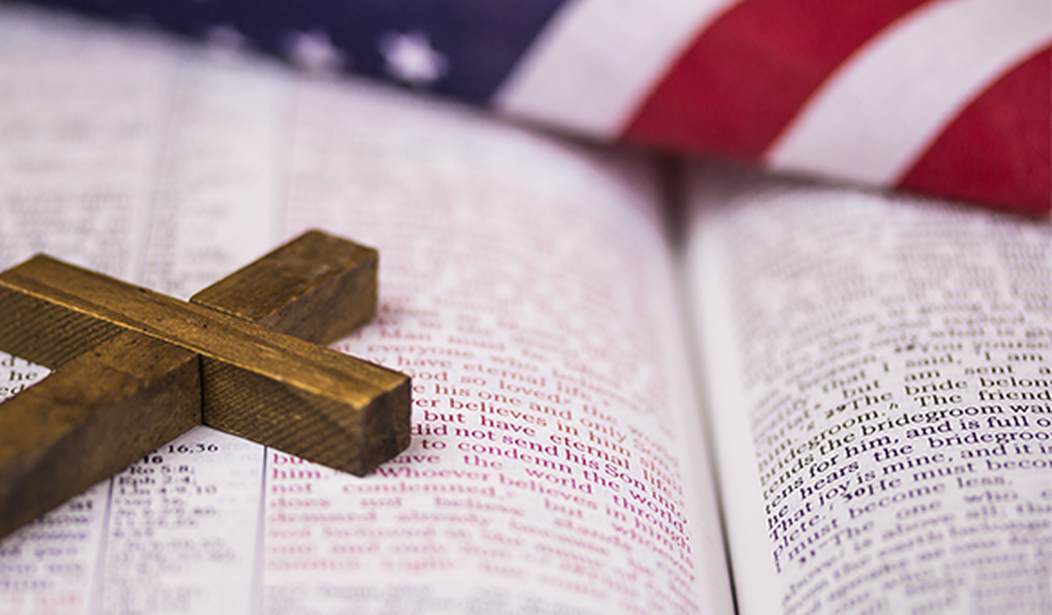Spring in America is a time of treasured religious observances. This year, Christians and Jews celebrate Easter weekend and Passover commencing on Friday, April 19 as Muslims prepare for Ramadan on May 6.
Our freedom of religion, guaranteed by the earliest words in the First Amendment, is assaulted daily by leftists in their thirst for cultural control. God is inconvenient to their hedonistic and oppressive worldview.
In our defense against toxic anti-faith activism, we should turn to a Founding Father widely criticized for his Deist perspective of God - America’s original pamphleteer, Thomas Paine.
A decade ago, the American Civil Rights Union published a unique presentation of Paine’s most powerful writings with commentary by constitutional scholar John Armor. Paine’s wisdom, advised by Armor’s retrospective, provides timely solutions to contemporary attacks on America’s “first freedom.”
Thomas Paine came to America from England in 1774 as dissatisfaction with Britain’s tyranny over the colonies was reaching a boiling point. In January 1776, he published his pamphlet “Common Sense” which made the moral argument for independence and equality under law.
Addressed to “the Inhabitants of America,” its target was people, not institutions.
Paine was America’s foremost religious contrarian. His criticism of institutional religion following the Revolution led to his loss of popularity. But it was his perspective that led to James Madison’s critical wording of the First Amendment. Paine believed individuals, not just religious institutions, should be protected from government intrusion.
Recommended
Author John Armor explains that for Paine, “the true meaning of freedom of religion is that no religion should be preferred, not that the government should be hostile to religion.” Paine eschewed institutions and embraced worshippers.
Paine believed government had one role as it relates to religion—to stay out of it. Yet today, government power is often harnessed to silence religious liberty, particularly at the local and state level.
President Bill Clinton signed the Religious Freedom Restoration Act (RFRA) in 1993 “to ensure religious freedoms are protected.” A few years later, the Supreme Court ruled that RFRA was an unconstitutional overreach by the federal government but since then, 21 states have passed their own versions of the law.
However, these legislative actions have not protected the faithful from anti-religious activists who manipulate the system for their own ends. Perhaps the best-known case is of bakery owner and Christian, Jack Phillips, of Masterpiece Cake Shop in Colorado. Mr. Phillips welcomes everyone to his bakery, but his religious beliefs preclude him from making cakes that violate his faith. After a gay couple purposefully chose his bakery for an activist test, he was prosecuted by Colorado. In 2018 the Supreme Court ruled in favor of Phillips’ religious liberty.
In response to this ruling, a transsexual activist attorney requested Phillips create a cake which celebrated her gender transition. Phillips again asserted his right to refuse on religious grounds.
In Ohio, a city zoning board amended ordinances to deny expansion of a Christian school. In Anchorage, city officials are suing a Christian shelter serving women who are victims of rape or domestic violence because the operators’ faith prevents them from allowing transgenders who are biologically male to cohabit private space with traumatized females. Chick-fil-A is often blocked from expansion by local activist officials because its founders hold traditional biblical views.
Ironically, the left’s propaganda machine tags these targets with the “discrimination” or “hate group” labels they have deliberately made into substitutional phrases for “religious freedom” within the culture.
Over the past decade, U.S. synagogues, historically Black and other Christian churches have been attacked through arson, bombings and shootings. Christians, Jews and Muslims have been killed within the walls and outside their houses of worship.
As a society, we should be asking some questions - does vilifying religion encourage violence against the faithful? Have anti-faith activists made religious discrimination trendy? Do government entities act for or against our religious freedom?
Tom Paine’s words in the 1770s inspired ordinary people to embrace the fight for liberty with ferocity. Paine believed in a powerful Creator God as the source of “doing justice, loving mercy and endeavoring to make our fellow creatures happy.” Paine believed religious freedom was an individual right that came with an individual responsibility to support the liberty of others. He knew the “United States”—the name he gave our nation—could be a beacon of that freedom for the world.
As Paine writes in Common Sense, “we have it in our power to begin the world over again.” As we enter this most holy season, it is a good time to celebrate religious liberty—one patriot at a time.
This is the first in a series of essays on Thomas Paine and First Amendment freedoms based on the 2009 ACRU publication America—Then and Now in the Words of Tom Paine.

























Join the conversation as a VIP Member